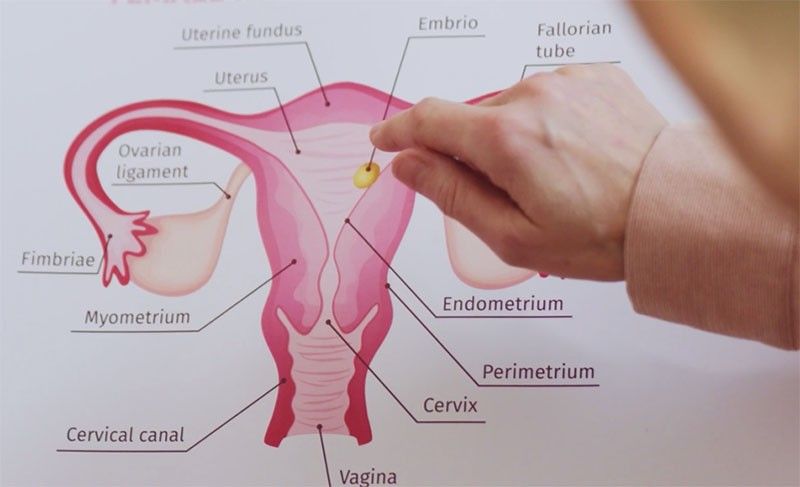Eliminating cervical cancer

The 2020 World Health Organization’s global strategy to accelerate the elimination of cervical cancer as a public health problem has three main pillars: 1) increasing coverage of human papillomavirus (HPV) vaccination of all girls 9 to 14 years of age to 90%, 2) increasing coverage of cervical cancer screening of women twice, at age 35 and age 45, to 70%, and 3) increasing coverage of treatment for all women identified with precancerous lesions and invasive cervical cancer to 90%. All these are ideally achieved by 2030.
The primary prevention of cervical cancer is best achieved through immunization of girls before they become sexually active. As a recommendation, HPV vaccines should be included in the national immunization program.
The Philippines started its HPV vaccination in 2013, then as a demonstration project. In 2015, through the Department of Health (DOH), the vaccination program covered 20 priority provinces with high magnitude and high incidence of poverty. In the subsequent years, it was rolled out to various local government units.
To date, there are now 52 provinces, 64 cities, and one municipality where the vaccination program is being implemented. The vaccine coverage showed less than 30% of girls aged 9 years have been immunized, according to the DOH.
Unfortunately, the program was not scaled up nationwide. This translated to almost 81% of girls up to 14 years old who missed the opportunity to be protected from HPV. Hence, if not detected earlier, they are the ones who will have greater chances of developing cervical cancer in the future.
All these show us that better understanding of cervical cancer – its primary prevention, early detection and even treatment -- is critical.
On June 14, 2023, a consultative workshop was held to provide a venue to discuss the country’s current situation and global initiatives of eliminating cervical cancer among women, as well as the state of HPV vaccination among Filipino school-age and adolescent girls.
This was in line with the implementation of the HPV Vaccine Acceleration Program Partners Initiative (or HAPPI) Project, which is a consortium of international non-government organizations and locally led by Jhpiego Philippines as a form of technical assistance to the Department of Health.
The workshop was attended by various stakeholders from the government, professional societies, patient groups, private sector, civil society and international organizations involved in different initiatives such as child, adolescent, and women’s health, school health, immunization and women’s cancer.
According to the WHO, robust advocacy and strategic partnerships are needed to inspire the national government and other stakeholders to prioritize cervical cancer. Through these partnerships, the creation of a supportive and enabling environment will be allowed and thus result into the allocation of sustainable resources and further collaborations.
Moreover, advocacy is crucial to translate new knowledge on innovations into timely and updated policies, changes in practice, and allocation of resources and funds. Successful advocacy requires building alliances and networks, establishing a pool of champions, using appropriate and local evidence, investing in compelling communications materials, and even the timely and periodic monitoring and evaluation of programs.
Earlier, on May 25, the Stratbase ADR Institute organized a hybrid event to officially launch the Philippine Cervical Cancer Elimination Movement. This is in collaboration and partnership with Jhpiego Philippines, Philippine Obstetrical and Gynecological Society, Philippine Society for Cervical Pathology and Colposcopy, Cancer Coalition of the Philippines and UHC Watch.
During the event, Prof. Dindo Manhit, president of the Stratbase ADR Institute, said that the “effective advocacy and communication strategies can overcome the many challenges that impede access to and use of cervical cancer prevention and care services. Such strategies should reflect national policy and be integrated into all levels of the health system.”
According to Dr. Jan Aura Laurelle Llevado, division chief of the Cancer Control Division of DOH, “they have done school-based vaccination then shifted to community-based vaccination during the COVID-19 pandemic but still, there are a lot of problems encountered.”
“I think we really have to test the service delivery model,” she said. “We also have to integrate vaccination services in other public health programs.”
Similarly, Dr. Ingrid Magnata, country program manager of Jhpiego Philippines, said they are working closely with the DOH and the objective of the HAPPI project is to accelerate HPV vaccine access coverage, sustain equity program, restore, and maintain HPV vaccination. She said that “achieving a nation free of cervical cancer is doable ... but we need to organize ourselves, we need to systematize all our efforts, and for us to reach elimination level, we have to scale up and most especially we need to empathize.”
The message is clear: primary prevention through HPV vaccination will not only benefit the health and welfare of women, but also of the whole population. In the near future, if we achieve this target, this will translate to high investment returns for the government. We need to work to make this a reality with unwavering support and collaboration with various partners and stakeholders.
Let us eliminate cervical cancer. Join the Cervical Cancer Elimination Movement!
Alvin Manalansan is the health and nutrition fellow of think tank Stratbase ADR Institute and co-convenor of the UHCWatch.
- Latest





























